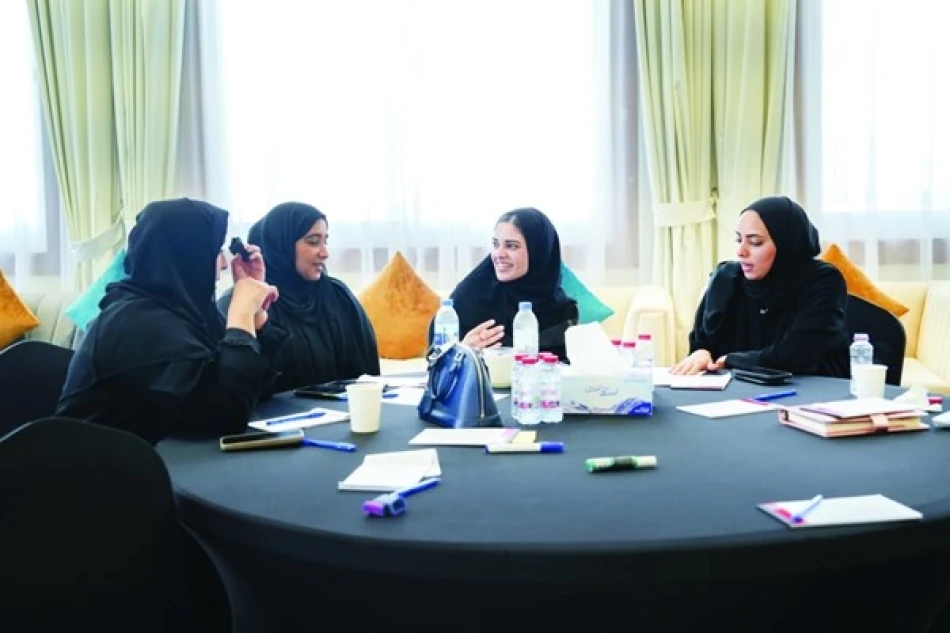
Empowering National Talent: Women's Union Trains Leaders in Women's Rights
UAE Advances Women's Rights Training Program with UN Partnership
The UAE General Women's Union has completed the first phase of its third stage in a comprehensive national program designed to build local expertise in women's and girls' rights. The initiative, backed by high-level government support and international partnerships, represents the Emirates' systematic approach to strengthening its position in global gender equality discussions while developing homegrown capacity in human rights advocacy.
Strategic Framework for Rights Education
The program operates through a carefully structured three-stage approach, each building upon previous foundations. The first stage provided participants with comprehensive training on human rights principles, constitutional frameworks, and international agreements including the Convention on the Elimination of All Forms of Discrimination Against Women (CEDAW) and the Beijing Declaration and Platform for Action.
This foundational approach reflects the UAE's recognition that effective advocacy requires deep understanding of both domestic legal structures and international human rights mechanisms. By establishing a common knowledge base among national cadres, the program ensures consistent messaging and professional competency across government and civil society sectors.
Building International Engagement Capabilities
The second stage focused on practical communication skills with UN and regional systems, particularly leveraging follow-up mechanisms such as Universal Periodic Reviews and treaty reporting processes. This component addresses a critical gap many developing nations face: having strong domestic policies but lacking the technical expertise to effectively engage with international monitoring bodies.
The emphasis on institutional channels demonstrates the UAE's commitment to sustained, professional engagement rather than ad-hoc participation in international forums. This approach mirrors successful strategies employed by countries like Singapore and Norway, which have built specialized diplomatic capabilities in specific policy areas.
Data-Driven Policy Analysis
The recently completed first component of the third stage concentrated on gender-disaggregated data utilization, monitoring and evaluation framework design, and gender-sensitive policy analysis. These technical skills represent the cutting edge of evidence-based policymaking in gender equality.
The focus on data and indicators reflects global best practices, as international organizations increasingly demand quantitative evidence of progress rather than aspirational commitments. Countries that excel in gender equality rankings, such as Nordic nations, consistently demonstrate strong data collection and analysis capabilities.
Institutional Partnerships and Implementation
The program's partnership structure includes the Permanent Committee for Human Rights and the UN High Commissioner for Human Rights Regional Office for the Middle East and North Africa. This collaboration provides access to international expertise while ensuring alignment with regional contexts and challenges.
The Dubai-based implementation, supported by the Community Development Authority's Human Rights Department, illustrates the UAE's federal approach to human rights capacity building, engaging both national and local government levels.
Regional Leadership Implications
This systematic capacity-building initiative positions the UAE to play a more influential role in regional and international women's rights advocacy. As Middle Eastern countries face increasing scrutiny over gender equality policies, those with trained personnel and robust institutional frameworks will likely emerge as regional leaders in policy dialogue.
The program's completion comes at a time when Gulf states are implementing significant social reforms, creating demand for skilled professionals who can navigate both traditional values and international human rights standards. The UAE's investment in this expertise suggests confidence in its ability to bridge these sometimes competing frameworks effectively.
Most Viewed News

 Layla Al Mansoori
Layla Al Mansoori






